Charm School For Wayward Cats
Shawn Simons, Kitty Bungalow
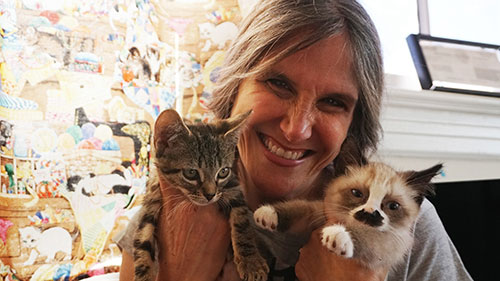 Shawn Simons said she accidentally started herding and domesticating feral kittens for adoption. What began as a hobby has turned into one of the best rescue stories of the decade. Shawn is making a difference for feral and homeless feline across Los Angeles county. She even enlists high-profile celebs to help with her cause.
Shawn Simons said she accidentally started herding and domesticating feral kittens for adoption. What began as a hobby has turned into one of the best rescue stories of the decade. Shawn is making a difference for feral and homeless feline across Los Angeles county. She even enlists high-profile celebs to help with her cause.
Shawn Simons is the Headmistress at the Kitty Bungalow Charm School for Wayward Cats. It all started when Shawn moved into her 100-year-old craftsman home, only to discover a number of stray feral cats living in her shed.
Kitty Bungalow Charm School for Cats deals 100-percent with feral cats. Shawn admits to being into themed parties, and just kind of ran with it for her organization. Her organization works to socialize feral kittens and has done around 400 adoptions a year. They also do free spays and neuters.
Feral cats are cats that haven't had a lot of human interaction. Most of them don't have any human interaction and have a "colony manager" who feeds them.
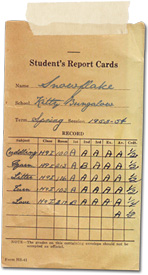 Human hands have also never touched the offspring of these feral cats that are being born under bushes, in alleys and even under cars. Unfortunately their feral mothers teach them to be afraid of humans. Shawn calls these "hissy" kittens.
Human hands have also never touched the offspring of these feral cats that are being born under bushes, in alleys and even under cars. Unfortunately their feral mothers teach them to be afraid of humans. Shawn calls these "hissy" kittens.
Shawn mostly works with these hissy kittens. She states that kittens are the most killed animals in shelters, not the 14-year-old dog that doesn't have a home. Kittens 8 weeks and younger represent 76-percent of all animals killed in the Los Angeles City Shelters.
It is possible to work with these hissy kittens at a young age to socialize them. The rule of thumb is that they had to be separated from their mothers at around 4 to 6 weeks of age, with people saying that after 8 weeks it can't be done. Shawn says they stretch that timeline and can even work with kittens up to 4 months of age.
The reason Shawn feels they can stretch that timeline is because they have a huge volunteer base. They start at 8:30 in the morning and go until 9:00 at night and the kittens see 80 different people a week, where most kittens only see a few. As a result, Shawn's states her kittens are no longer feral and are the most social cats you will ever come across.
Shawn says that they constantly see the feral cats misrepresented and maligned in the media, however they believe that a feral cat is - just a cat. The overpopulation problem is a problem created by humans and therefore we must find a humane solution, rather than blaming the cats.
If you're looking for a kitten in the Los Angeles area, be sure to check out Kitty Bungalow Charm School for Wayward Cats.
Visit Website
The Deadly Spill - Pet Antifreeze Toxicity - Dr. Debbie
 Chilly winter weather means pet owner must be on the lookout for special health risks. An unfortunately common cold weather emergency is antifreeze poisoning. Just a small spill of this essential car fluid can be fatal for pets. So whether you have a dog, cat or are currently pet less but own a car - this toxicity is one you need to be aware of to keep animals safe.
Chilly winter weather means pet owner must be on the lookout for special health risks. An unfortunately common cold weather emergency is antifreeze poisoning. Just a small spill of this essential car fluid can be fatal for pets. So whether you have a dog, cat or are currently pet less but own a car - this toxicity is one you need to be aware of to keep animals safe.
Antifreeze Toxicity in Pets
Antifreeze contains ethylene glycol, a compound that is used in automobiles to cool engines, and is resistant to freezing temperatures. Ethylene glycol is highly toxic to household pets - just a small quantity causes illness and death. Additionally, antifreeze has a sweet taste that animals find appealing and are apt to drink. Pets that ingest antifreeze rapidly develop neurologic symptoms and kidney failure. Small amounts of antifreeze can prove fatal for pets. Just a teaspoon can prove toxic for a cat or small dog, while several tablespoons are toxic for a larger dog.
Ethylene glycol is also found in some lesser known places but still poses the same toxic risk. It is used in winterizing fluids for toilets in vacation homes and RV's. Ethylene glycol is also found in home solar units, break fluids and within portable basketball goalpost bases.
What Are The Symptoms of Antifreeze Toxicity?
Initial symptoms occur within 30 minutes to 12 hours after ingestion and include increased thirst, increased urination, depression, uncoordination and seizures. Some pet owners describe their pet acting "drunk."
Later symptoms occur 12-72 hours after ingestion and may include severe lethargy, difficulty breathing, mouth ulcers, vomiting and coma.
How is Antifreeze Poisoning Diagnosed and Treated?
Your veterinarian will perform blood work, urine tests and may perform a specific test for the presence of ethylene glycol.
Suspect cases, even if unproven, are aggressively treated with intravenous fluids. Intravenous antidotes are given to bind the toxin, and anti-seizure medication is administered if needed.
Once kidney failure has set in, the prognosis is unfortunately grim for survival.
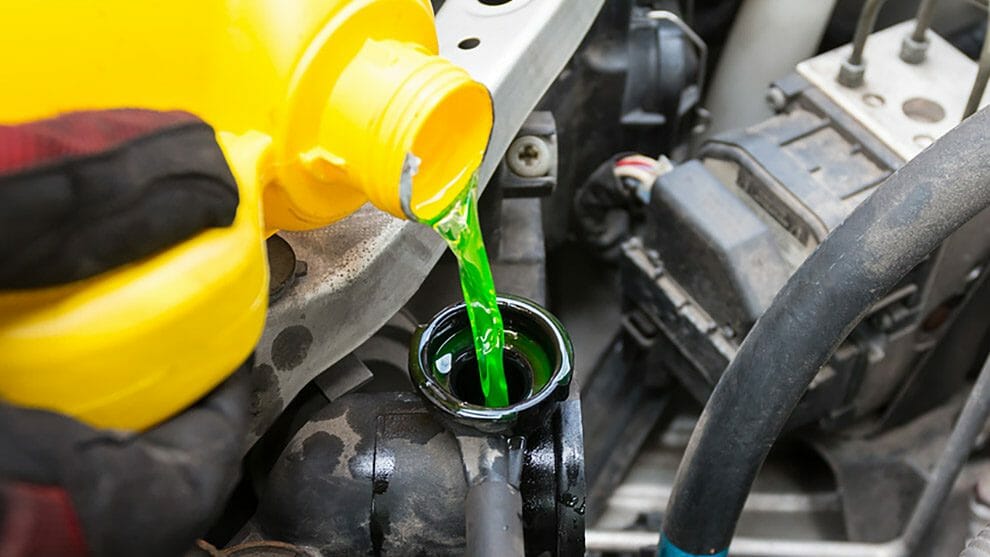 How to Prevent Accidental Antifreeze Poisoning?
How to Prevent Accidental Antifreeze Poisoning?
Pet owners should recognize what an antifreeze spill looks like. Look for puddles of this fluid in parking lots, driveways and streets and keep your pets far away. The color of antifreeze may be green, pink, yellow, red, blue or orange. Report antifreeze spills to neighbors and businesses. One time I made a fuss at a pet-friendly coffee bar when I noted an antifreeze puddle smack dab in the path of dogs. Speak up - the life you save could be your own pet.
Don't allow your pets to roam. Outdoor cats and dogs that are permitted to wander are at risk for encountering antifreeze spills. How can you prevent a toxicity when you can't monitor your pet's behavior or whereabouts?
Keep your car and garage safe. Immediately clean up any antifreeze spills and safely secure bottles of antifreeze away from pets and children. Keep up regular automotive maintenance to ensure no antifreeze leaks.
Switch to less toxic antifreeze. While no antifreeze is completely safe, look for antifreeze that contains propylene glycol in place of ethylene glycol. This compound is a safer choice, but still can pose a toxic risk if ingested in larger quantities. Some antifreeze products have a bittering agent included to deter animals and children from ingesting it. But according to the ASPCA, there isn't any published data proving that adding a bittering agent helps to prevent ingestion. Any antifreeze should be considered potentially toxic and handled with appropriate caution.
What to Do if Your Pet Ingests Antifreeze?
Time is of the essence - seek prompt treatment at your veterinarian or emergency hospital for the best chance of survival. Don't wait until serious symptoms arise, because once advanced kidney failure develops, the prognosis is poor.
For more information about pet toxicities visit the ASPCA Animal Poison Control website.
Featured veterinarian known as "Dr. Debbie" on national pet radio program, Animal Radio. Ebook author of "Yorkshire Terriers: How to Be Your Dog's Best Friend"; "Pugs: How to Be Your Dog's Best Friend"; "Mini Schnauzers: How to Be Your Dog's Best Friend"; and "Shih Tzu: How to Be Your Dog's Best Friend." Dr. Debbie's books.
Visit Website
6 Critical Things To Know When Considering Adopting A Bird
Robert Semrow, Animal Radio Listomania
 It's Robert Semrow, your pet world insider here with this week's Animal Radio Listomania.
It's Robert Semrow, your pet world insider here with this week's Animal Radio Listomania.
January is bird adoption month and we certainly love all types of birds here at Animal Radio. Cockatiels, African Greys, Macaws, Parakeets, Finches and Canaries are just some of the popular birds for pets. But before you adopt one, here are 6 important things to know about birds when considering adding a bird to your family.
#1 - Birds can live very long lives. Depending on the type of bird you are bringing in to the family, they may live for 20 - 50 years or more. Some parrots have been documented living into their 80s! That means that this is a long-term commitment that will be with you longer than most other things in your life.
#2 - Birds are extremely social and need attention for their emotional and physical support. They need to be engaged by their family and will maintain that need throughout their lifetime. Also, birds have different ways of communicating or vocalizing, some sing or chirp, while others may converse with you using words and latch on to a particular phrase or twelve that you may or may not like to hear.
#3 - Birds are active and very inquisitive. They need to have their minds and bodies engaged with room to move about in the cage and hopefully a sheltered aviary or place to stretch their wings. If they have had their wings clipped, they also need room to exercise and toys to climb and swing on. Toys and other things that allow birds to work off their energy, as well as nurturing their natural instincts, are important for their physical and mental health.
#4 - Sleep is something that we pet parents want, but birds must have sleep, as it is essential to a birds health. Most birds need in the range of 10 hours of sleep a night. So if you are night owl, don't expect your bird to be.
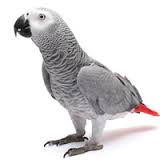 #5 - Speaking of health, birds eat a varied diet that is more than just birdseed. They also need grains, fruits, vegetables and some added vitamins and minerals as well. The term eating like a bird shouldn't refer to eating very little, instead it should probably refer to eating healthy and varied offering that nature offers. From fruits to vegetables there are a lot of quality options that not only provide your bird sustenance and nutrition, but also engage their minds and playful side. So what you feed and how you feed is critical.
#5 - Speaking of health, birds eat a varied diet that is more than just birdseed. They also need grains, fruits, vegetables and some added vitamins and minerals as well. The term eating like a bird shouldn't refer to eating very little, instead it should probably refer to eating healthy and varied offering that nature offers. From fruits to vegetables there are a lot of quality options that not only provide your bird sustenance and nutrition, but also engage their minds and playful side. So what you feed and how you feed is critical.
#6 - Finally, if you are going to adopt a bird, remember that you will need to have a vet who specializes in bird medicine and care. Not every vet works with birds or other exotics. So it's important to know whom you are going to turn to as your pet's healthcare expert in advance.
Having a bird can be a rewarding, long-term relationship. Birds are unique and have wonderful personalities and traits that are sure to endear them to you.
Do you have another must know tip about bird ownership; share it with us on our Animal Radio Facebook Page.
http://petworldinsider.com
The Dogfather's Grooming Tip with Joey Villani
Don't Use Febreze On Your Pet
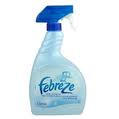 Joey tells us about a client that came into his salon and their dog smelled great! At first, Joey didn't understand why they wanted to have him groomed. However, upon further inspection, the dog just didn't feel clean. That's when the owner commented that she actually sprayed her dog with Febreze.
Joey tells us about a client that came into his salon and their dog smelled great! At first, Joey didn't understand why they wanted to have him groomed. However, upon further inspection, the dog just didn't feel clean. That's when the owner commented that she actually sprayed her dog with Febreze.
This is not the first time that Joey has heard of people doing this. However, you shouldn't be spraying your pet with anything that is not made to be applied directly to them, for a number of reasons.
No one knows what these chemicals could be doing to your pet's skin. Anything that irritates you is definitely going to irritate your pet. People are working with chemicals all day. We have our hands in dish detergent and use lotions and moisturizers, among others, but our pets don't cone into as much as contact with these as we do.
It is a fact that our dogs and cats smell, because unlike us, they don't bathe everyday. They are active and get into things and even like to roll in nasty things.
Another problem that causes stink is their diet or a medical condition. If your pet is being groomed regularly and has a foul odor, not just a regular "dog smell," talk to your veterinarian who may recommend special products like shampoos and maybe even antibiotics.
Bottom line, don't use Febreze on your pet - don't use anything that's not made specifically for your pet. They are plenty of doggy sprays and cologne on the market to help your pet smell nice, and if you use the right shampoo, you can bathe them as frequently as you'd like.
Animal Radio News - Lori Brooks
 Secondhand Smoke Bad for Pets
Secondhand Smoke Bad for Pets
You’ve heard many times that smoking and second hand smoke is bad for your health. What we haven’t heard too much about are the effects secondhand smoke has on dogs and cats. A study stated that dogs and cats, whose humans smoke, were at greater risk of cell damage, weight gain and some animal cancers. Researchers in Scotland discovered that, "An examination of the testicles removed from castrated dogs found that a gene, which acts as a marker of cell damage, was higher in dogs living in smoking homes,” and that dogs whose humans smoked also experienced a greater weight gain after being neutered. But if you have cats, the risk is greater because cats groom themselves, which increases the amount of smoke chemicals that enter the body.
Cat Uses Litter Box as Flotation Device in Flood
A very smart cat used its litter box to stay afloat during a devastating flood that had water almost up to the ceiling of his house trailer. Two members of the Disaster Response Team from the Humane Society pulled up to the trailer in a boat and were able to gently extract the wet cat from the litter box as it floated by a window inside.
 Bunk Bed Allows You To Share Bed with Pets
Bunk Bed Allows You To Share Bed with Pets
For those of us who love sleeping with our pets, there’s a company in Brazil that came up with a new mattress. It’s a “bunk bed” of sorts that allows you to share a bed with your pet without having to jockey for your own spot on the bed. The base of the mattress contains a removable box that is a pet bed. The pet bed addition under the box springs idea came from a customer who wanted to sleep with her pooch but didn’t actually want the dog, which had health problems, in bed with her.
Adopt a Pet and Save Money on Your Medical Bills
If you don’t have a pet, go out and adopt today if you want to save some money. A study showed that having a pet in your home may save you money on medical bills. Two researchers from George Mason University in Virginia have calculated a savings of more than $11 billion in health care costs in the United States as a result of pet ownership. With all the studies saying how pets make us healthier, the pair decided to put a value on all those healthy benefits. On average, the 132.8 million pet owners in the country visit a doctor 0.6 times less than the average non-pet owners. With the average cost of a visit to the doctor’s office at $139, that calculates to more than $11 billion pet owners did not spend. Not only that, but the dog owners who walked their pet five or more times a week had a lower incidence of obesity and were responsible for saving $419 million in related health care costs, according to the study.
 Listen to the entire Podcast of this show (#1206)
Listen to the entire Podcast of this show (#1206)





